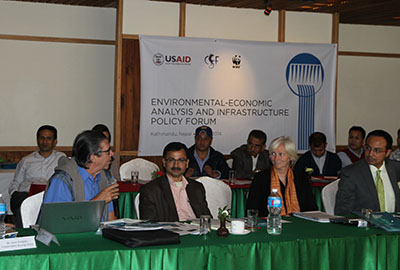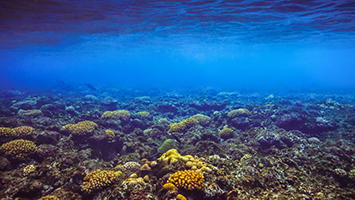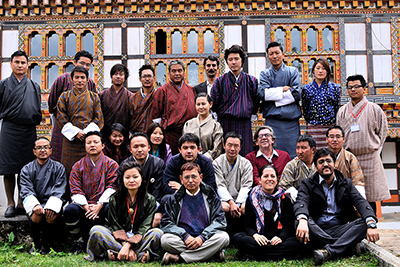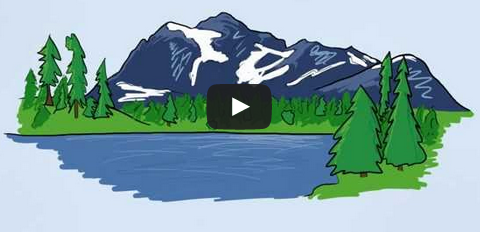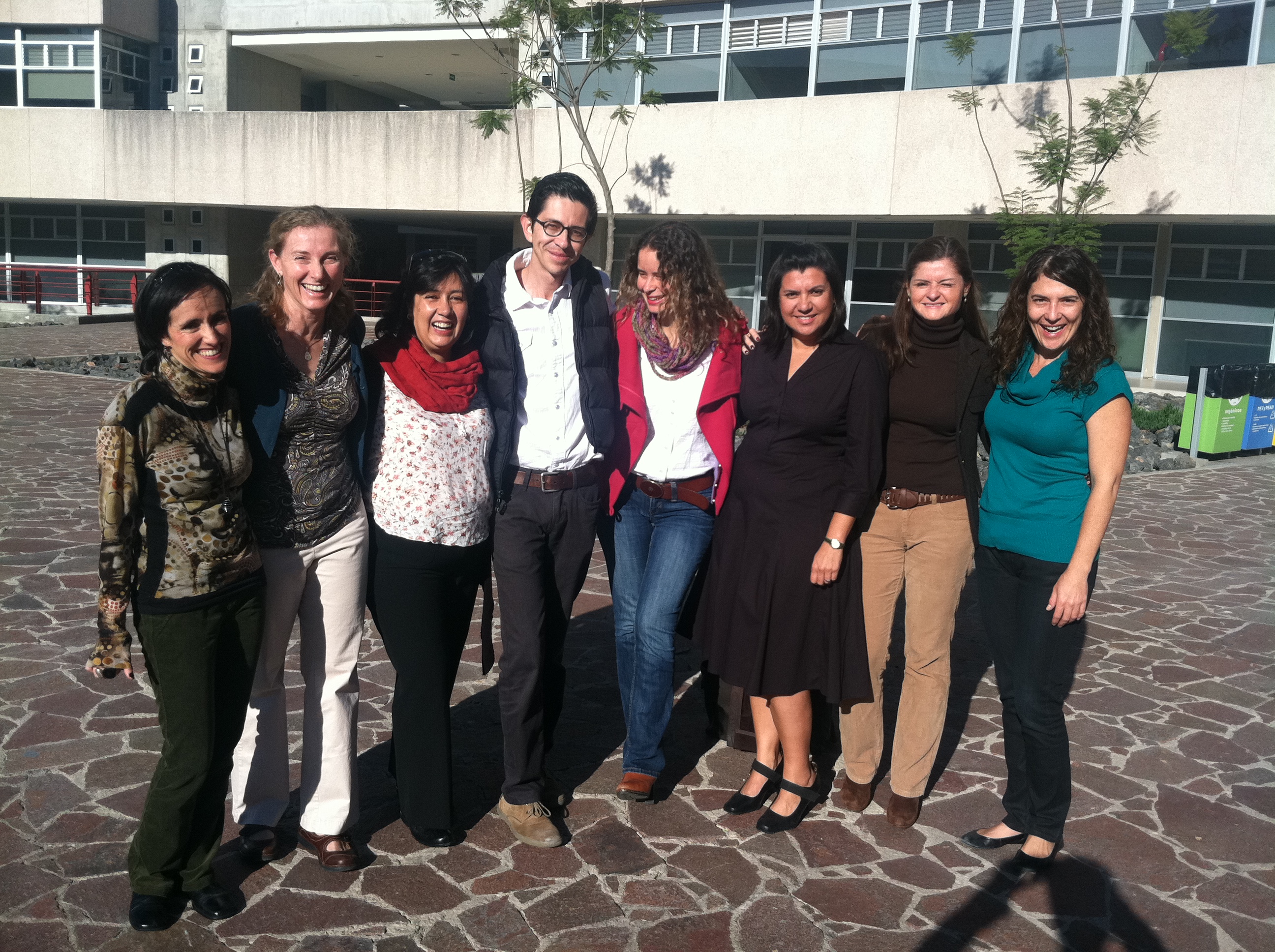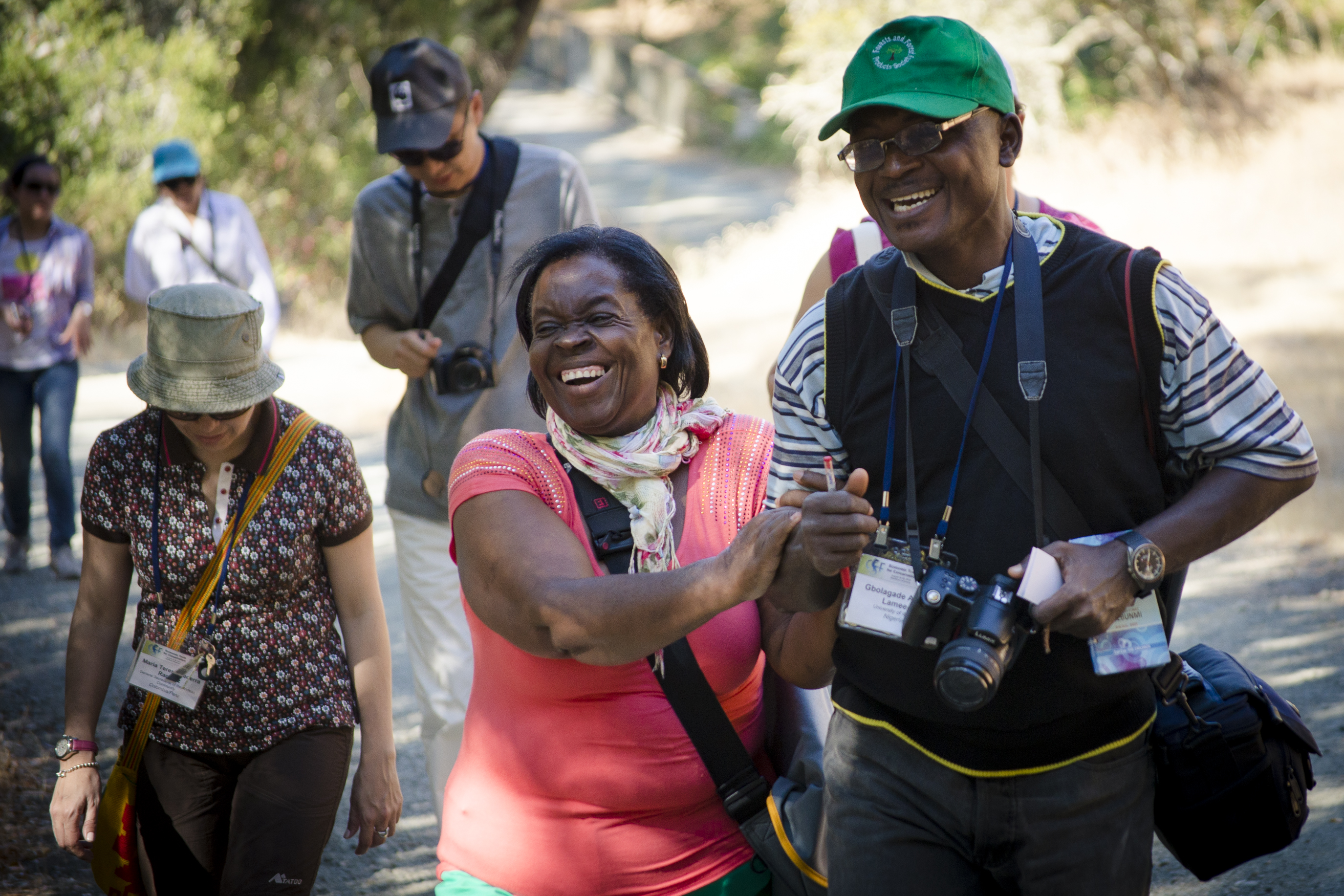News
From left to right: Laura Rodríguez, Eglé Flores, Eduardo Ponce Guevara, Ángela Mojica
and CSF's Cecilia Ayala. © Eduardo Ponce Guevara
It all began with four course graduates from CSF's International Training Course, held annually at Stanford University: Eduardo Ponce Guevara, Eglé Flores, Ángela Mojica and Laura Rodríguez. These alumni, all from Mexico and the surrounding area, dreamed of bringing the Economic Tools for Conservation Course back home to be conducted in Spanish for their colleagues.
Mangroves on the Equador coastline. © Ammit Jack
Since 2008, Ecuador’s Socio Bosque Program has been protecting the country’s environment through incentive payments to individual and community land owners. Socio Bosque has to date protected nearly 1.3 million hectares of important habitat. In 2013, the government decided to expand the program to mangroves, one of the most productive and threatened ecosystems in the world.
Transport specialists and workshop participants, Asuncion, Paraguay
Ecosystems in Latin America and the Caribbean (LAC) sustain hundreds of millions of people, but are threatened by a series of interlocking challenges. Rapid development and population growth have placed increasing pressure on natural resources. Pollution, deforestation, infrastructure, large-scale tourism development, invasive species, and over-fishing all threaten these highly bio-diverse ecosystems, as do the effects of climate change.
In May Conservation Strategy Fund and World Wide Fund for Nature - Nepal (WWF Nepal) held a one-day policy forum on biodiversity conservation and infrastructure development. The forum covered environmental economics and policy tools used to integrate conservation and infrastructure plans in Nepal. The discussion focused on how infrastructure planning and decision-making could be improved across the Himalayan Region. Dr. Krishna Chandra Paudel, Secretary of Nepal’s Ministry of Science, Technology and Environment, specifically addressed the need to comprehensively evaluate infrastructure projects and policies at the national level.
As part of CSF's Conservation Economics Initiative, we are developing an innovative online Coastal Conservation Economics course in partnership with Duke University. The 4-month distance-learning course will be launched in January 2015, and will include interactive lectures, video lessons, webinars, virtual office hours, readings, exercises and exams, with an expected time commitment of about 3 hours per week.
CSF recently completed our second course in the Himalayan region, Analysis of Infrastructure from a Conservation Economics Perspective Course. The course, held at the Ugyen Wangchuck Institute for Conservation and Environment (UWICE), was CSF's first to focus primarily on infrastructure development in the region from a conservation economics perspective. UWICE's beautiful campus located in the culture and biodiversity-rich Bumthang served as a great location for the 22 Himalayan-based participants to learn about economic tools for conservation and infrastructure planning.
Want to know why environmental problems happen? How to value things in the natural environment? The essentials of fisheries and forestry economics? Step-by-step instructions on cost-benefit analysis? As part of the Conservation Economics Initiative, we just released an exciting new collection of video lessons intended for anyone interested in learning basic environmental economic concepts, refreshing what was learned in our courses, or to complement lectures.
CSF is launching its Training Partner Network as part of our Conservation Economics Initiative to bring economics training to more conservation professionals around the world. This effort is made possible thanks to a grant from the Gordon and Betty Moore Foundation. One of the cornerstones of the Initiative is a network of CSF Training Partner organizations offering conservation economics training in parts of the world where we do not have our own training teams. The Network will be supported by CSF and by our academic partners throughout the globe.
CSF was recently awarded $100,000 to expand our trainings, analyses, collaborative field work in Africa, thanks to the generosity of the Handsel Foundation.
There’s one park in the Kingdom of Bhutan where the ranges of the Royal Bengal Tiger, the snow leopard and Himalayan black bear overlap and where communities have lived in harmony with nature for hundreds of years. A trekker’s paradise, Jigme Dorji National Park is also known for it’s astounding biodiversity, breathtaking alpine meadows and majestic snow-capped mountains. But, until recently, it was missing one thing: proper campsites.

